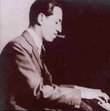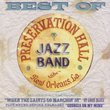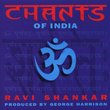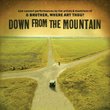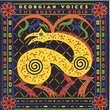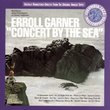| All Artists: Henry Aldrich, Straloch Lute Book Anonymous, John Blow, John Church, Vladimir Cosma, The Baltimore Consort & Merry Companions, James F. Weaver, Peter Becker, Paul Shipper Title: The Art of the Bawdy Song Members Wishing: 0 Total Copies: 0 Label: Dorian Recordings Original Release Date: 1/1/1996 Re-Release Date: 2/11/1993 Genres: Folk, International Music, Jazz, Special Interest, Pop, Soundtracks, Classical Styles: Traditional Folk, Easy Listening, Vocal Pop, Opera & Classical Vocal, Chamber Music, Historical Periods, Baroque (c.1600-1750), Early Music, Instruments, Strings Number of Discs: 1 SwapaCD Credits: 1 UPC: 053479015525 |
Search - Henry Aldrich, Straloch Lute Book Anonymous, John Blow :: The Art of the Bawdy Song
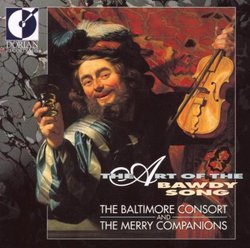 | Henry Aldrich, Straloch Lute Book Anonymous, John Blow The Art of the Bawdy Song Genres: Folk, International Music, Jazz, Special Interest, Pop, Soundtracks, Classical
|
Larger Image |
CD DetailsSimilarly Requested CDs
|
CD ReviewsGorgeous melodies, scandalous lyrics! Rick Douglas Janssen | Lake Zurich, IL USA | 08/01/2001 (5 out of 5 stars) "From the opening instrumental this CD fills the listener's mind with images of sunny open fields, a busy Medieval or Renaissance city, or better yet, a popular corner pub complete with a burly barkeep and a saucy barmaid.I found myself humming these catchy melodies over and over, and at first listening the songs are very melodious and beautiful...and then you start to understand the words the performers are singing. This CD is titled "Bawdy" for a reason.The songs range from those that are true drinking songs such as "'Tis women makes us love. 'Tis love that makes us sad. 'Tis sad that makes us drink. And drinking makes us mad!" But there are a few on the other end of the spectrum, full of pure bawdiness. The most forthcoming, in my opinion, is My Man John, a story in song about a maid named Mary who broke the handle of her hair broom, but man John had a replacement for her. "My man John had a thing that was long. My maid Mary had a thing that was hairy." It only progresses from there and I'll let your imagination fill in the rest, or better yet, purchase this CD and find out! In truth there is nothing bad about there lyrics unless taken out of context, which one can't hope to avoid.I highly recommend The Art of Bawdy Song for all of those interested in early music, drinking songs, or just looking for something different. You won't be disappointed." Prelewd to Postlewd FrKurt Messick | Bloomington, IN USA | 09/27/2005 (5 out of 5 stars) "The Baltimore Consort, an ensemble of six players, was founded in 1980 with the purpose of performing 'broken consort' pieces of Elizabethan origin. 'Broken' here refers to the instrumentation - treble viol/violin, flue/recorder, lute, cittern, bandore and bass viol. Their repertoire expanded beyond these beginnings to include broader British fare, as well as French and Italian music of the time. This is a happy expansion, as it made this disc of older, bawdy (for its time) music possible. The Baltimore Consort play with life and vigour, with a good deal of improvisational flair, not being bound to texts and going through the production of notes as if mechanically. This is true to the spirit and nature of the early music, in which performers often had to 'play by ear', neither being able to read music nor having printed music even if they could. This is particularly true of the songs on this disc, where many are derivative of anonymous jokes and stories, and much of the music is likewise folk-tune and anonymously composed. Some of the songs can be rather shocking. As Mary Anne Ballard writes in the accompanying notes, 'We must remember that in the days before indoor plumbing and pooper-scooper laws, everyday life was of an earthier flavour than it is today.... The men of the singing clubs and the ladies of stage poked fun at themselves and their companions with wit, pleasantry and contrivance.' The names of many of the composers of these pieces have been lost to history, particularly the more folk-song oriented ones. However, some well-known composers are represented among the pieces here - Purcell, D'Urfey, Aldridge, and others. The regular players include Mary Anne Ballard (viols), Mark Cudek (cittern, guitar, recorder and bass viol), Custer LaRue (vocalist/soprano), Larry Lipkis (recorder, viols), Ronn McFarlane (lute), Chris Norman (flutes), Webb Wiggins (tambourine and 'virginals'). Some artists are known from other Dorian productions, such as Ronn McFarlane on the lute in the collection 'Greensleeves'. Added to the regular consort players are the Merry Companions, including Peter Becker (baritone), Alexander Blachly (baritone), Paul Shipper (bass, belch-canto), and James Weaver (baritone). One more addition includes a guest artist, Lorenzo Labbrobacio, playing of all things, the 'fartophone', a rather mysterious instrument indeed. Labbrobacio defies identification on the internet other than references to this disc, and so the mystery deepens. This is music that is interesting, truly fun to listen to, entertaining and has a quality about it that makes it a joy both in musical and humourous tones. " A sly and rollicksome good time! Brianna Neal | USA | 11/29/2002 (4 out of 5 stars) "On this recording, the Baltimore Consort and the Merry Companions are full of fun, both blatant and tongue-in-cheek. Soprano Custer La Rue and the instrumentalists of the Consort are joined by a quartet of classical male singers (Peter Becker, Alexander Blachly, Paul Shipper and James Weaver) with quite a theatrical sense of humor. The two groups take turns presenting ribald tavern songs of merry old England, interspersed by light, catchy instrumentals listed in the credits as the "Prelewd", the "Interlewd" and a "Fresh Ayre". Drinking, sex and other bodily functions are both celebrated and ridiculed in songs that are cleverly worded and enthusiastically sung, and in at least one case, accompanied by a mysterious instrument (reminiscent of P.D.Q. Bach) called a "fartophone". Especially amusing are the "catches" or rounds, and the new meanings that result from the staggering of words when several different verses are all sung together. It sounds silly, and is silly, but that's the point of it all--celebrating the "earthier flavor" of life 17th and 18th century England. My copy came with a parental advisory sticker stuck fast to the case, but my mother didn't seem overly concerned, and in fact enjoyed it too when I played it for her! For more fun Renaissance vocals, both salacious and serious, try "All At Once Well Met: English Madrigals" by the King's Singers, and "The King's Singers' Madrigal History Tour: Italy, England, France, Spain, Germany" by the King's Singers and the Consort of Musicke."
|

 Track Listings (33) - Disc #1
Track Listings (33) - Disc #1

